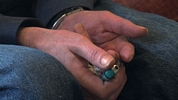|
|
 Acne (1,500) Acne (1,500)
 Addictions (1,500) Addictions (1,500)
 Advice (1,500) Advice (1,500)
 Allergies (1,092) Allergies (1,092)
 Alternative Medicine (1,500) Alternative Medicine (1,500)
 Anti Aging (1,500) Anti Aging (1,500)
 Breakup (1,500) Breakup (1,500)
 Cancer (1,499) Cancer (1,499)
 Dental Care (1,500) Dental Care (1,500)
 Disabilities (1,500) Disabilities (1,500)
 Divorce (1,500) Divorce (1,500)
 Elderly Care (1,498) Elderly Care (1,498)
 Goal Setting (1,500) Goal Setting (1,500)
 Hair Loss (1,500) Hair Loss (1,500)
 Health and Safety (1,497) Health and Safety (1,497)
 Hearing (1,500) Hearing (1,500)
 Law of Attraction (1,499) Law of Attraction (1,499)
 Marriage (1,500) Marriage (1,500)
 Medicine (1,497) Medicine (1,497)
 Meditation (1,499) Meditation (1,499)
 Men's Health (1,500) Men's Health (1,500)
 Mental Health (1,500) Mental Health (1,500)
 Motivational (1,500) Motivational (1,500)
 Nutrition (1,495) Nutrition (1,495)
 Personal Injury (1,499) Personal Injury (1,499)
 Plastic Surgeries (1,500) Plastic Surgeries (1,500)
 Pregnancy (1,496) Pregnancy (1,496)
 Psychology (1,500) Psychology (1,500)
 Public Speaking (1,500) Public Speaking (1,500)
 Quit Smoking (1,500) Quit Smoking (1,500)
 Religion (1,499) Religion (1,499)
 Self Help (1,500) Self Help (1,500)
 Skin Care (1,500) Skin Care (1,500)
 Sleep (1,500) Sleep (1,500)
 Stress Management (1,500) Stress Management (1,500)
 Teenagers (1,492) Teenagers (1,492)
 Time Management (1,500) Time Management (1,500)
 Weddings (1,500) Weddings (1,500)
 Wellness (1,500) Wellness (1,500)
 Women's Health (1,500) Women's Health (1,500)
 Women's Issues (1,500) Women's Issues (1,500)
|
Taking time to relax is essential to offset the destructive effects of chronic stress on the body. Through the regular practice of relaxation techniques, one can begin to overturn this cumulative, hurtful process, and engage the body's incredible possibility for self-healing.
Progressive muscle relaxation, also known as a guided body scan is a very valuable stress management technique. A guided body scan -- which seeks to locate and release muscular tensions -- supports deep relaxation, as most of us hold needless tension in some of our muscles. The location of chronic muscle tension can differ from person to person.
In progressive muscle relaxation, you shift your attention into different parts of your body and let go of any felt sensations of tightness or pain. With consistent practice, you can become more conscious of your tension and discover ways to let it go. Letting go of physical tension promotes soothing and a calm, quiet mind.
You can add to the relaxation by first tensing each muscle group, maintaining it for an instant, and then releasing it into deeper relaxation. That initial increase of momentary tension assists you in becoming more conscious of how the muscle feels when it is tense, as well as making it possible to relax more deeply.
Try a "mini-body scan" now as you are reading this.
Start with deep, relaxed breathing. Then when you are ready, allow your attention to travel sequentially through your body, starting at your head and slowly moving down to your toes. Within each part of your body, pause a moment and scan for tightness, tension, or chronic soreness. Begin to allow yourself to release any pain or tightness that you become aware of.
You can also visualize sending the warm energy of your in-breath into the discomfort or soreness, and then, with the exhalation, release and dissolve the tension.
Physical relaxation -- the release of muscular tightness -- in the body promotes the Relaxation Response. Your heart rate, breathing and metabolism slow down and your blood pressure lowers. Your mind becomes peaceful and relaxed, free of worry -- and is no longer sending out the signals that release the stress hormones to flood throughout your body.
As you are learning this method, or if you want a more structured practice it is frequently of use to work with a teacher or to use a guided meditation CD. This will help you to remain attentive to your breath and to pay attention to segments of your body which might otherwise remain unnoticed in the body scan.
We unwittingly elicit the Stress Response in our bodies through sustaining chronic muscle tension; through anxiety, worry, and catastrophic thinking; through lack of exercise and proper sleep; through a frantic, fast-paced stressful lifestyle. The Stress Response can be the underlying cause of a compromised immune system, greater susceptibility to disease, and to more rapid aging.
The antidote to the Stress Response is the Relaxation Response, which reverses the damaging effects that result from our bodies being chronically "revved-up", as if to fight or flee from peril.
Take a little time, today, to practice progressive muscle relaxation. Twenty minutes of Relaxation Response per day can reverse the effects of chronic stress. Provide this give to yourself -- you'll be happy you did.
|
|
|



